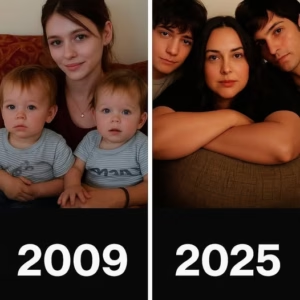One impulsive decision. One night of blurred judgment. For some, it becomes nothing more than a story they laugh off later. For others, it changes everything.
The truth is, intimacy isn’t as casual as the modern world pretends it to be. Behind the glossy myth of “no-strings fun” and spontaneous encounters lies a quiet aftermath that many people don’t talk about — the emotional confusion, the invisible fallout, and sometimes, real consequences that ripple long after the night ends.
Sleeping with the wrong person isn’t always about moral judgment. It’s about impact — on your heart, your health, and your peace of mind. Experts in psychology, relationships, and behavioral science agree that physical connection without emotional safety often leaves deeper marks than people realize.
At first, it can feel harmless — even exhilarating. The rush of attraction, the comfort of touch, the validation of being wanted. But once the thrill fades, reality sets in. Without genuine trust or emotional alignment, that closeness can quickly turn into emptiness. What seemed like connection was often just chemistry, and chemistry alone is fleeting.
Psychologist Dr. Marianne Ellis calls this “post-intimacy dissonance” — the uneasy feeling that follows a physical encounter that doesn’t align with your values or expectations. “Your body and mind operate on different timelines,” she explains. “The body experiences intimacy in the moment, but the heart processes it afterward. If there’s no emotional foundation, what’s left is often confusion, regret, or a sense of being used.”
That’s where the danger begins. When intimacy happens without emotional reciprocity, people often internalize the experience as rejection, even when it wasn’t intended that way. This can lead to lowered self-esteem, distrust, and avoidance of future vulnerability — all defenses built to prevent being hurt again.
And that’s just the emotional side.
Socially, the consequences can be just as damaging. When the person you choose is already in a relationship, or part of your friend circle, the fallout can be brutal. Secrets rarely stay secret. What started as a private escape can quickly become a public embarrassment. Reputations can crumble under gossip, relationships fracture, and trust — once broken — is nearly impossible to rebuild.
Even when both parties are single, mismatched expectations are common. One person might see the encounter as the start of something deeper; the other might view it as a temporary escape. That imbalance fuels disappointment, resentment, and misunderstanding. When physical closeness isn’t backed by emotional honesty, both people end up feeling deceived — even if no one technically lied.
Social media and hookup culture have normalized the idea of casual sex, often reducing intimacy to entertainment or sport. But the human mind isn’t wired to treat vulnerability like a transaction. Studies from the Kinsey Institute and the American Psychological Association show that casual encounters can leave people, especially those seeking emotional connection, feeling lonelier and more anxious afterward. The thrill fades, but the self-doubt lingers.
Then there’s the reputational toll — something people rarely consider in the moment. What feels private under dim lights can become public under brighter ones. Rumors travel. Screenshots spread. What was supposed to stay between two people can quickly become currency for gossip or humiliation. Even subtle whispers can erode your self-confidence, professional credibility, or relationships with others.
And of course, there are the physical risks — the part everyone knows but often chooses to ignore in the heat of the moment. Sexually transmitted infections remain prevalent, even among adults who consider themselves careful. Protection reduces risk but doesn’t erase it. Beyond infections, there’s also the possibility of unplanned pregnancy — a life-altering consequence that no one expects until it happens.
Dr. Ellis notes that when these physical consequences arise in relationships without emotional support, the experience becomes exponentially harder. “A crisis shared with someone you trust can be managed,” she says. “But a crisis with someone who doesn’t care for you can be traumatizing.”
What makes it worse is that the harm isn’t always visible. People walk away from these experiences smiling, pretending it was just fun, while quietly battling guilt or confusion underneath. They tell themselves they’re fine, that it’s just part of modern life — but late at night, the mind replays moments it can’t quite make sense of.
This isn’t about shame. It’s about awareness.
Human connection is powerful because it intertwines psychology, biology, and emotion. When treated carelessly, that power turns inward — becoming self-doubt, anxiety, or cynicism. When treated intentionally, it becomes something else entirely: trust, healing, and intimacy in the truest sense.
The difference between those two outcomes is rarely luck. It’s choice.
Choosing who to share yourself with isn’t prudish — it’s intelligent self-preservation. Real intimacy is more than bodies; it’s boundaries, safety, and shared respect. It’s saying, “You don’t get access to me unless you see me.” It’s understanding that your worth isn’t measured by who desires you, but by who respects you.
The hidden costs of sleeping with the wrong person aren’t limited to bad nights or awkward mornings. They’re in the erosion of self-trust — that quiet voice that says, “I knew better.” They’re in the anxiety that makes you question future partners. They’re in the way you flinch from vulnerability, not because of the next person, but because of the last one.
It’s a heavy lesson many people only learn through experience. But it doesn’t have to be that way. Slowing down, paying attention, and asking the hard questions — Do I trust this person? Do I feel safe? Will I feel the same tomorrow? — can save months or years of regret.
Because once that moment passes, you can’t undo it. You can move forward, yes. You can heal, grow, and forgive yourself — and you should. But pretending that the choice didn’t matter only repeats the same pattern that caused the pain.
Sleeping with the wrong person isn’t just about bad timing or bad luck. It’s about ignoring red flags — the dismissiveness, the dishonesty, the emotional vacancy we notice but rationalize. It’s about choosing chemistry over character and paying the price afterward.
So before giving yourself to someone who hasn’t earned your trust, remember what’s really at stake: not just your body, but your sense of peace. Real intimacy is sacred — not because it’s rare, but because it’s personal. Protecting it isn’t fear. It’s wisdom.
One night can be fleeting. But self-respect lasts forever.





